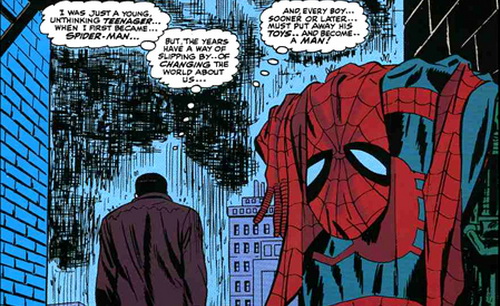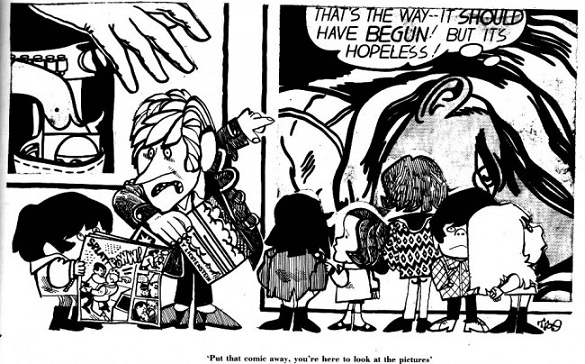So it turned out there were quite a few incidents of (sexual) harassment at the New York Comic-Con, one part of which was the ad campaign ran by the con’s sponsor, Arizona Ice Tea, with their ” I love Big Cans” hur hur innuendo. Though that sort of pseudo tittilation couldn’t have helped the atmosphere at the con, but Ulises Farinas calls out the much deeper link between comics culture itself and harassment:
There’s arguments about cosplay not being consent, which is such a broken debate because it takes place in a space where half the images being costumed are of characters that’s only existence depends on being a sexual object. SLAVE Leias and Wonder Women who’s only armor is a fucking bracelet. How can i expect any dude to understand some complex shit like white male privilege, when they prefer to spend their whole lives in echo chambers of caveboy spandex. Where every “strong female character” is just another fanboy fantasy with guns strapped on. All the elaborate justifications in the world can’t change the fact that Black Widow was introduced to us tied up, that despite years of slash fiction online and in zines, we’ll see plenty of lesbian witches but never one gay Captain America. That Uhura is an even less important character in Star Trek today, than yesterday. That because we loved pacific rim so much, we had to ignore the fact that it fails the bechdel test like every other movie, and…well..uhhh…lets just call it the Miyako test instead now. Fuck that shit.
I think she’s got a point, in that the immature sexual pandering and sexism in much of mainstream comics feeds into the mindset that thinks cosplayers are there to be groped. But this doesn’t mean it’s pointless for comics conventions to take measures against it. And while “white male privilege” may be “complex shit”, keeping your fucking hands to yourself and showing some minimum of respect to everybody at a con, fan or professional, isn’t above the reach of even the average fanboy.
I also think that the rise of cosplay, as an important, separate thread in comics fandom is a good thing. Cosplay isn’t new of course, but its popularity is and the amount of creativity and sheer craft put in it is amazing. It’s easy to dismiss it all as “slave Leias”, but the fact that this is a part of fandom in which women are in the lead, removes some of that “boy club” feeling lingering in comics fandom.

